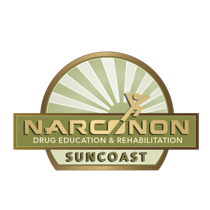We’re Always Going to Have a Drug Epidemic

One of the unfortunate parts of the drug crisis—beyond the countless deaths, ripped apart families, and destroyed lives—is the fact that the epidemic seems to be getting worse every day. The numbers from 2017 aren’t in yet, but many experts and professionals expect the death toll to surpass the totals from 2016. Each day there are more media headlines about bad dope and mass casualty events all over the country. Lately, more and more solutions have been created as a means of combating the problem. Non-opioid solutions and non-narcotic solutions have been in the works for a while, but neither of them is an adequate solution to the drug crisis.
The Massachusetts-based company, Boston Scientific was recently given approval for their newest product, the Spectra WaveWriter Spinal Cord Stimulator System. This is supposed to be a huge breakthrough in non-drug options to treat pain. It’s the first therapy of its kind to be approved by the FDA and the company has high hopes for it being able to bring the overdose numbers down a bit. The system is a spinal cord implant which works by interrupting the body’s natural pain signals by sending low electrical pulses into the nervous system. Paresthesia, the medical term for when a body part “falls asleep,” is the medical basis of this treatment. The implant induces paresthesia in any part of the body the patient wants to treat and essentially puts it to sleep. Another type of therapy called “sub-perception” therapy is also used with the Spectra WaveWriter Spinal Cord Stimulator System and has no noticeable sensation. Patients can choose to use one or both of these therapies to treat their pain. Boston Scientific is hopeful that the new device will help curb the opiate problem and reduce the number of drugs like OxyContin, that doctors are prescribing.
I think Boston Scientific is doing a good thing by creating an alternative to opiates and that’s all well and good. However, many addicts aren’t taking opiates because they are in severe pain and are overprescribed painkillers. While some addicts definitely have physical conditions that require pain relief, most addicts have no legitimate reason for taking painkillers. In many cases, these drugs are the catalyst for them getting hooked on pain medications in the first place.
The over-prescribing of opioids allowed many people to get their hands on drugs who didn’t need them, but the real problem is that most people like opiates because they make them feel good, help them to escape their problems, and not deal with life—not because they’re in excruciating pain. I think it’s admirable that Boston Scientific is working to address the issue of pain without drugs, however, I don’t think spinal cord stimulators are the complete solution. And as many of you know, I’m a firm believer in long-term drug rehab that gets to the underlying reason a person uses drugs as a solution. Even if we got rid of every last opiate pill, every last bit of heroin, and all the fentanyl in the world disappeared, we’d just end up with a different drug epidemic. Right now, the problem is opiates and even if opiates go by the wayside in the future—a different drug will take its place. Then that one will go away, and it will be yet a different drug. We actually need to handle what causes a person to turn to drugs. Otherwise, it doesn’t matter what the drug is. People will always find another drug to numb their problems and create a false sense of escape. Until we get to the bottom of why a person can’t face life, we’ll always have a drug epidemic.

